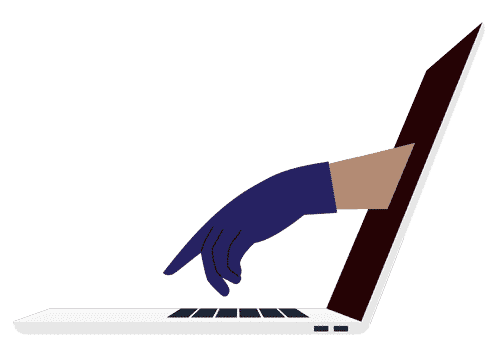- December 12, 2023
- Jim
- 0
In the digital world, it’s becoming more and more important to stay vigilant when it comes to cyber security. With the amount of personal information we’re putting online, cyber threats are growing more sophisticated and cyber criminals are always looking for new ways to access valuable data. It’s important that we take measures to protect ourselves.
Cyber security has become more and more important in the 21st century. Simply put, cyber security is the practice of defending computers, networks, programs and data from malicious attacks by understanding potential threats and deploying measures to protect against them. The main focus of cyber security is protecting computer systems and information from theft, disruption or damage to their hardware, software or electronic data. Cyber security is essential for any individual user or business as it not only protects them from fraud and identity theft but also from malicious software and other online threats.
What is a cyberattack?
A cyberattack is an unlawful or malicious attempt to gain access to sensitive digital data stored on computers, networks and mobile devices. Attackers may also want to deny access to applications, websites, and networks, or to manipulate data to their benefit or to suit their aims. While there are various types of cybercrime, cyberattacks are the most common form. Common types of cyberattacks include:
- Malware – This includes computer viruses, ransomware and trojan horses.
- Phishing – Victims of phishing are prompted to give up sensitive information, such as usernames and passwords, by an attacker who poses as a legitimate organisation, such as a bank, HMRC, or TV Licensing, etc.
- SQL injection attacks can give cyber attackers access to a database which is extremely problematic.
- Denial-of-service attacks flood a network with data overwhelming it so that it crashes.
- Ransomware – Cyber criminals gain access to your system and encrypt your files so you cannot access your own data until you pay them.
- Man-in-the-middle attackers intercept data between being sent and received.

The Vulnerabilities that Leave Businesses Exposed
More and more businesses are becoming reliant on technology and digital connections to carry out their everyday operations, however this increases vulnerability to cyberattacks. Businesses need to be aware of the potential security holes in outdated systems, lack of employee education about cyber security, and weak security policies. All of these vulnerabilities can give unwanted access, leading to data breaches, financial losses and reputational damage.
How Can I Secure My Business?
- Who has access to information and when. If you do not offer remote working, then you can include protocols such as employees only being able to access the system from within your workplace.
- Educate and inform your team on the importance of cyber security and ensure their buy-in.
- Set reasonable password protocols.
- Use a firewall.
- Keep your software up to date – out of date software can be vulnerable.
- Limit access – not every person needs access to all of the data in your company. By limiting access to what is essential for their job role, you can reduce some of the risks if an individual falls victim to a cyberattack.
- Implement Two Factor Authentication (2FA) – this adds an extra layer of defence to your online accounts and can make it harder for attackers to gain access.
Don’t wait for a breach to happen – safeguard your business today.
Choose Principle Defence for Peace of Mind
Additional Resources
- The Cyber Essentials Scheme: Cyber Essentials is a Government-backed scheme that has been developed to protect organisations against a wide range of common cyber-attacks.
- Security and Privacy Templates: Help to manage the security and privacy risks posed to your business.
- Risk Register: Manage your risks and opportunities and track your performance against organisational objectives.
- Cybersecurity Key Terms and Concepts eBook: Written in a clear and concise manner, this eBook breaks down the concepts of cybersecurity into easily digestible information.